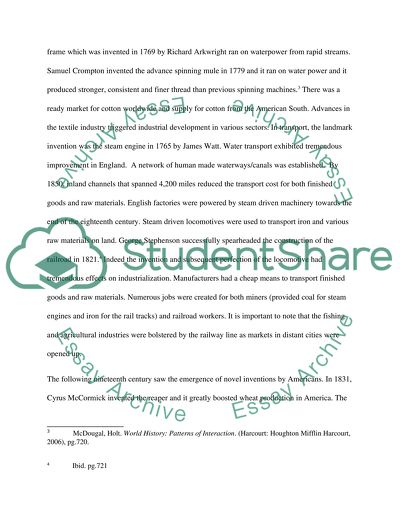Cite this document
(“Role of Inventors and Governments in Industrialization Research Paper”, n.d.)
Role of Inventors and Governments in Industrialization Research Paper. Retrieved from https://studentshare.org/macro-microeconomics/1471948-his2543essay-questions
Role of Inventors and Governments in Industrialization Research Paper. Retrieved from https://studentshare.org/macro-microeconomics/1471948-his2543essay-questions
(Role of Inventors and Governments in Industrialization Research Paper)
Role of Inventors and Governments in Industrialization Research Paper. https://studentshare.org/macro-microeconomics/1471948-his2543essay-questions.
Role of Inventors and Governments in Industrialization Research Paper. https://studentshare.org/macro-microeconomics/1471948-his2543essay-questions.
“Role of Inventors and Governments in Industrialization Research Paper”, n.d. https://studentshare.org/macro-microeconomics/1471948-his2543essay-questions.


